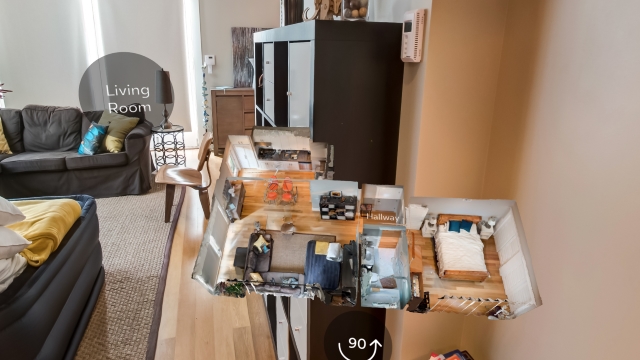I love to talk about real estate to my friends and family. But each time, in the middle of the conversation, the same words come up: “risky”, “complex”, “uncertain”, “time consuming”… What if all this were about to change thanks to technology? Here are three areas where digital is dusting off real estate.
Online Tools and Mortgage Simulators
Online simulators are a down-to-earth living example of what technology can bring to real estate. Mortgage calculators are practical, fast, and free and they have changed the lives of millions of home buyers. Personally, I love using them when I need to estimate my payments or calculate my mortgage affordability.
Before going into an in-depth discussion with a bank account manager, digital simulators are useful tools to simplify the process. In recent years, they have significantly improved their accuracy. Now they can consider various criteria to give you a personalized simulation. Some elements are obvious, such as your personal deposit, term, or interest rate… Other elements are more specific and allow to adapt simulations to your personal needs.
For a mortgage qualification assessment, an online simulator will consider renovations works, your personal status (single borrower, married couple, first-time buyer, etc. ), all income streams (rental, financial, social, etc.). With these elements in hand, state-of-the-art simulators allow you to prepare your upcoming real estate projects like never.

Immersive Visits with AR/VR
Let me warn you right away: I am not going to talk about the real estate madness taking place in the metaverse. On the contrary, I mean « real » estate and that’s where virtual reality technologies bring mind-blowing revolutions. When you think of « virtual reality » and « augmented reality », the first thing that comes to mind are property visits. Traditionally, a prospective buyer will make several visits before making his choice (or not).
Use cases of VR and AR have become reality.
They allow buyers to discover a house or apartment remotely and live a truly qualitative experience. Thanks to high-definition 360° photos, VR models are precise and realistic enough for the visitor to have a real-life idea of the property. Models can be seen as « digital twins » of the properties but the real technological added value lies elsewhere.
For a renovation project, VR makes it possible to better visualize future developments. And while visiting a property remotely, AR provides access to all related documents (energy diagnoses, notarial deeds, co-ownership regulations…). In a recent podcast from Exchanges at Goldman Sachs, the American investment bank estimates that VR/AR applied to real estate will weigh 2.6 billion dollars on a global scale in 2024.

AI for Ultra-Fast Home Buying
If, like me, you have already carried out several real estate projects, you know how time-consuming it is. From the first searches to the keys hand-over, a deal takes several months (and sometimes more…) to go through. In recent years, start-ups rushed into this gap to put their AI algorithms at work and streamline the process.
Now, they can buy real estate directly with lead times reduced to a few days (for standard transactions). Their operating mode is based on data and analysis. To beat traditional market players, they integrate all necessary real estate valuation information – surface area, location, property condition, local services, energy efficiency … With some of these startups, an indicative purchase offer is sent within two days after completing an online form. In addition to being fast and reliable, the transaction is also more secure.
For traditional agencies, a real disruption is underway. According to the National Association of Realtors, coming years should witness a sea change in the real estate agency industry.

